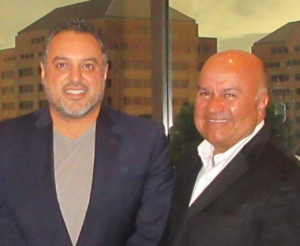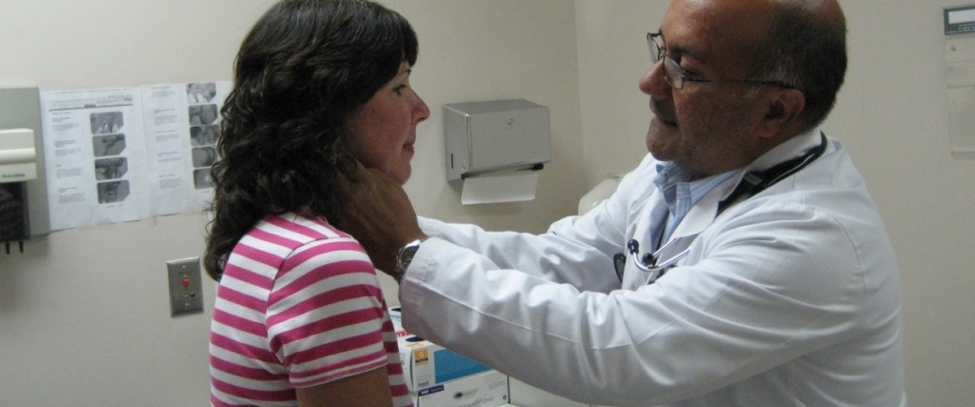
ME/CFS has long been considered to have a significant immunological component and a new study, “Cytokine signature associated with disease severity in chronic fatigue syndrome patients”, adds additional heft to the body of research.
Conducted by a team of researchers led by Stanford immunologist and Solve M.E. Research Advisory Council member, Dr. Jose Montoya, the researchers evaluated the blood of 192 ME/CFS diagnosed patients and 392 age-and sex-matched controls, utilizing a high-throughput technology that allowed for the detection of fifty-one serum cytokines in the samples. Unlike many small studies, Dr. Montya’s work included enough participants and control measures to ensure conclusions could be drawn with statistical confidence.
The key finding was that the levels of 17 cytokines (immune function signaling proteins), correlated with disease severity. Patients with the most severe symptoms exhibited higher quantities than patients with milder symptoms or healthy individuals. Additionally, 13 of the identified cytokines are known to stimulate inflammation and thought to contribute to the cluster of symptoms experienced by patients. TGF- β, a global regulator of growth implicated in many serious chronic diseases, was found to be elevated. Additionally, resistin, a hormone secreted from fat cells, was lower in patients as compared to control subjects. These could be potential biomarkers.


The study built on Dr. Montoya’s investigation of the immunology of ME/CFS, specifically the role and function of pro and anti-inflammatory cytokines. The finding of a statistically significant linear relationship with severity of the disease is notable, even though the 17 cytokines did not differentiate patients from controls overall. Montoya and his colleagues suggest that severity could be a useful construct for subgrouping ME/CFS.
Broadly, coherence in cytokine data has been elusive and other studies have also come up with sometimes inconsistent results on reporting cytokine levels that distinguish ME/CFS cases. For example, research done by Broderick et al. found significant alterations in 10 of 16 cytokines targeted for the study, but earlier research by Montoya had conflicting results with a subset of these. Contradictory findings from a study by Theorell et al. on cell-mediated activation of cytotoxic lymphocytes, which fight intracellular infections, failed to establish reproducible differences in the cytokine production of patients. Another thread of immunology-focused research points to a different pattern of immune signatures that differ based on progression of the disease, rather than severity. Hornig et al. published a study in 2015 that established a stronger correlation of cytokine alteration as a function of illness duration, with notable activation of both pro- and anti-inflammatory cytokines in early ME/CFS cases.
Although promising, research into the immunopathogenic mechanism of ME/CFS requires much more funding and study to establish a biomarker through immune molecules. Montoya’s research, existing in a multifaceted landscape, strengthens the immune system dysfunction connection with ME/CFS and is an important building block in our understanding of this complex disease.

Dr. Montoya is originally from Colombia and completed his medical degree with honors at the Universidad del Valle. He trained in Internal Medicine at Tulane University in New Orleans. Following his residency, he completed his fellowship in Infectious Diseases at Stanford University in Palo Alto under the mentorship of Dr. Jack S. Remington. In addition to being the head of the Stanford University Myalgic Encephalomyelitis/Chronic Fatigue Syndrome Initiative, Dr. Montoya is also the Director of the National Reference Laboratory for the Study and Diagnosis of Toxoplasmosis, the recipient of the 2013 Arthur L. Bloomfield Award for Excellence in the Teaching of Clinical Medicine, and the author of over 135 publications and journal articles.
Relevant citations and publications include:
Broderick, G. et al. (2010). A formal analysis of cytokine networks in chronic fatigue syndrome. Brain Behav. Immun. Retrieved from https://www.ncbi.nlm.nih.gov/pubmed/20447453
Hornig, M. et al. (2015). Distinct plasma immune signatures in ME/CFS are present in the early course of illness. Sci. Adv. Retrieved from https://www.ncbi.nlm.nih.gov/pmc/articles/PMC4465185/
Montoya, J.G. et al. (2017). Cytokine signature associated with disease severity in chronic fatigue syndrome patients. Proc Natl Acad Sci U.S.A. Retrieved from https://www.ncbi.nlm.nih.gov/pubmed/28760971
Theorell, J. et al. (2017). Unperturbed Cytotoxic Lymphocyte Phenotype and Function in Myalgic Encephalomyelitis/Chronic Fatigue Syndrome Patients. Front. Immunol. Retrieved from https://www.ncbi.nlm.nih.gov/pmc/articles/PMC5483846/

